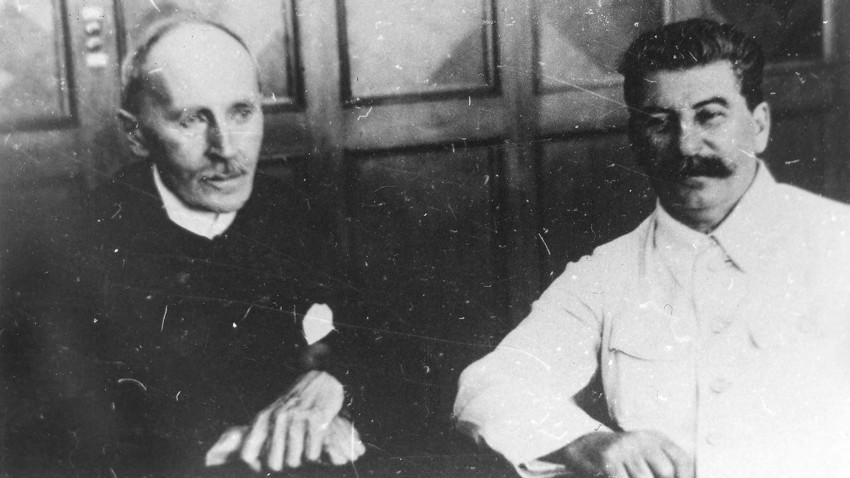
Romain Rolland and Joseph Stalin
Getty Images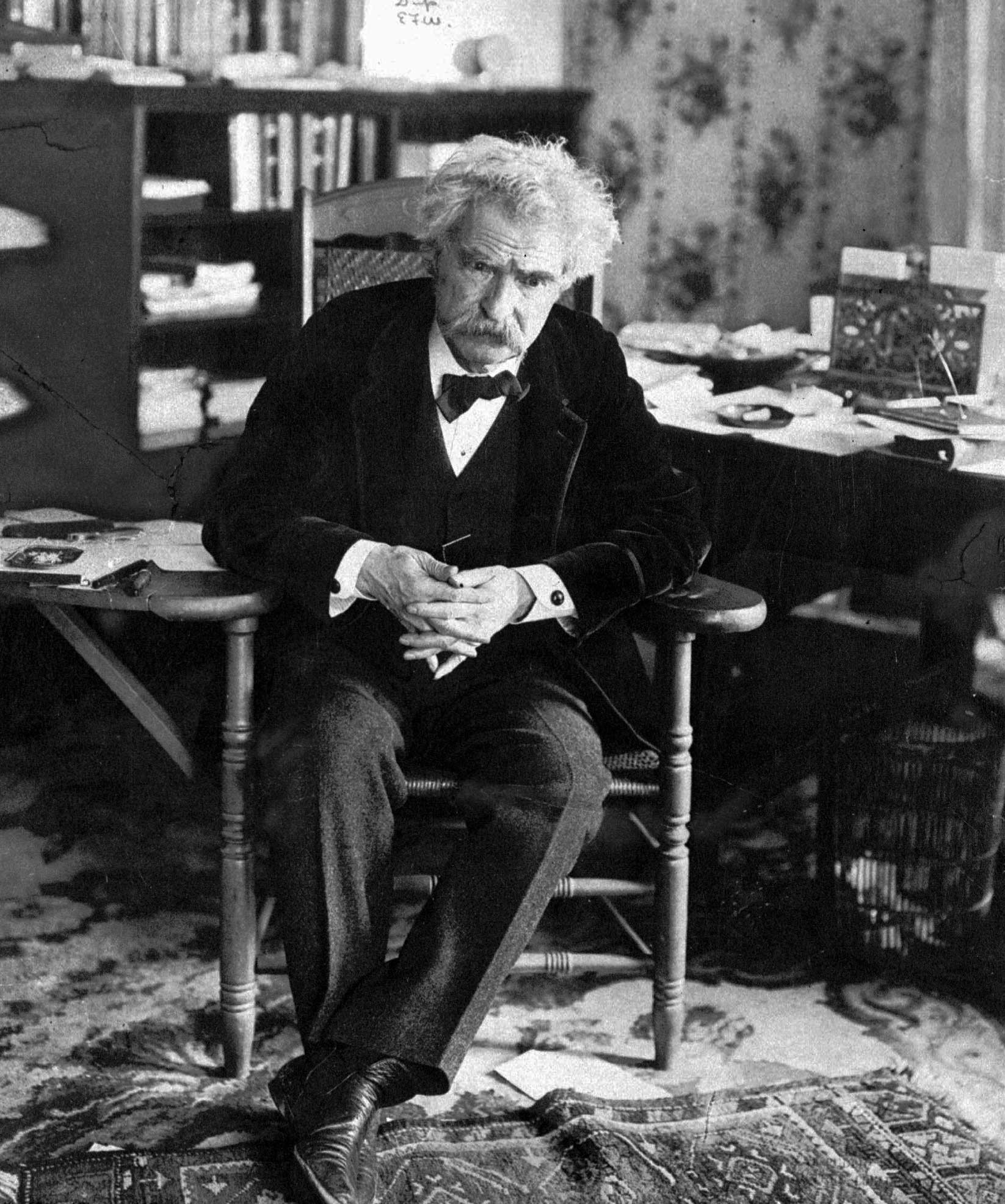
Mark Twain
APLet’s start not with political talk in the Kremlin, but rather with an ordinary American who visited Russia as part of a long voyage to Europe and the Holy Land, and who was greeted in Russia at the very highest level.
In 1866, a ship with a group of American tourists that included a young and aspiring writer, Mark Twain, visited Russia’s Black Sea
They didn’t talk much, but the writer describes the meeting with the Emperor in much detail, both with humor and curiosity. He was especially interested in the outfit and behavior of everyone from the royal family.
“The Emperor wore a cap, frock coat and pantaloons, all of some kind of plain white drilling—cotton or linen and sported no jewelry or any insignia whatever of rank. No costume could be less ostentatious. He is very tall and spare, and a determined-looking man, though a very pleasant-looking one nevertheless. It is easy to see that he is kind and affectionate.”
Twain was excited to see the Emperor and felt strange how this man was “chatting here under the trees like the most ordinary individual in the land.” With irony he wrote that only if the Tsar opens his lips it could make “ships fly through the waves,” and “a countless multitude of men would spring to do his bidding.”
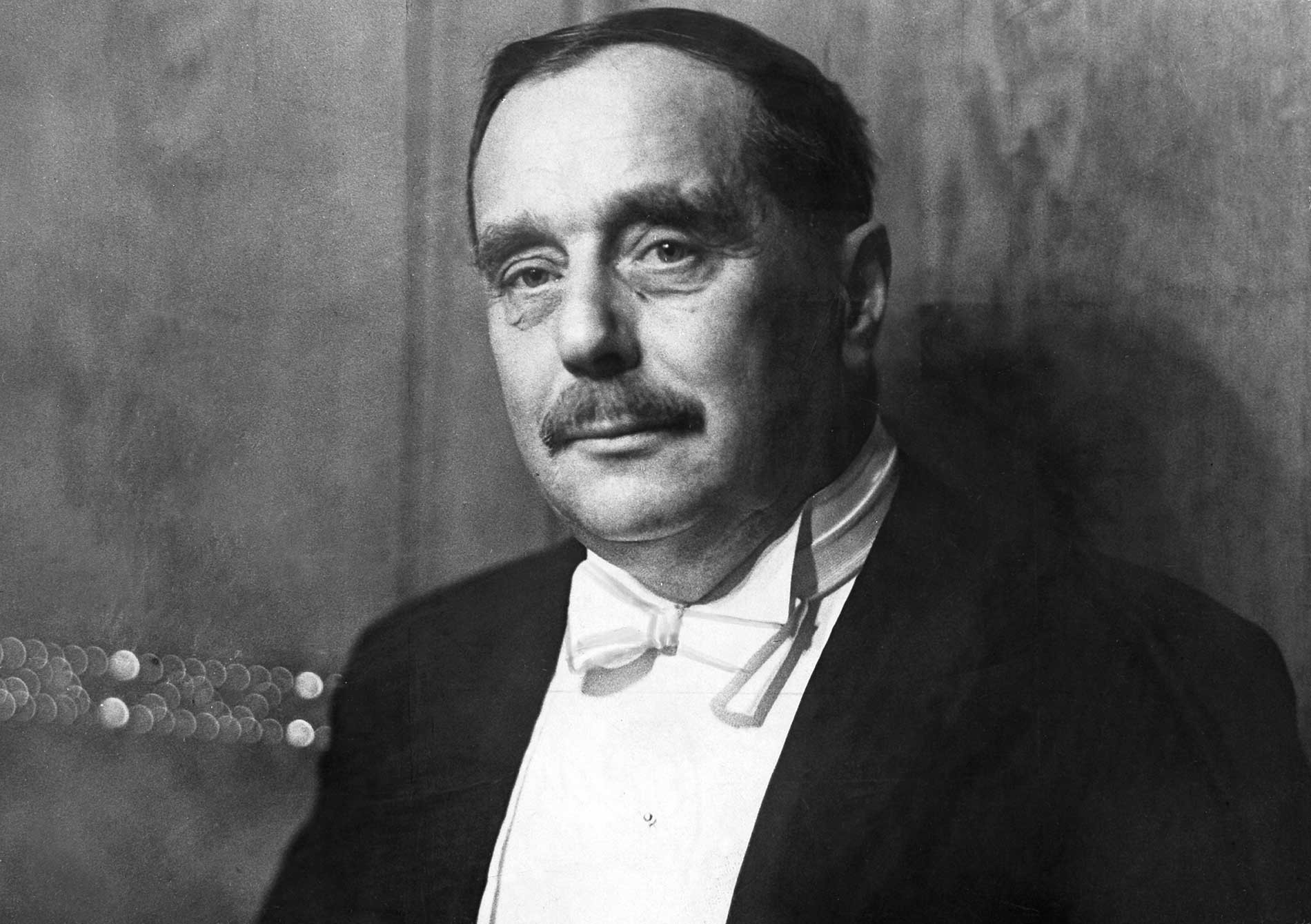
H.G.Wells
Ullstein Bild/Vostock-PhotoН. G. Wells visited Russia three times. The first time was in 1914 when he spent two weeks in St. Petersburg, and the second time was in 1920, after the Revolution and during the Civil War. So, he was able to compare how the country changed after the Bolsheviks came to power, which the West was not well informed of.
Wells had a meeting with Lenin, and they discussed the future of Russia (Wells asked him what type of country he is creating), and the possibility of revolution in England.
After this visit, Wells published Russia in the Shadows, which consists of a series of articles he wrote for The Sunday Express. Wells called Lenin, “The Dreamer in the Kremlin,” but despite such a description, the revolutionary leader left a good impression on the writer.
“I had come expecting to struggle with a doctrinaire Marxist. I found nothing of the sort. In
In 1934, ten years after Lenin’s death, Wells returned to Soviet Russia and found an improvement in living conditions under Stalin's rule. He had a long interview with the leader (full version in English here), and they discussed economics, socialism, class war and many other topics. Wells came to the meeting with suspicion and prejudice expecting to see a fanatic, but then he admitted that he’s never met a more honest man such as Stalin and didn’t see anything evil in him.
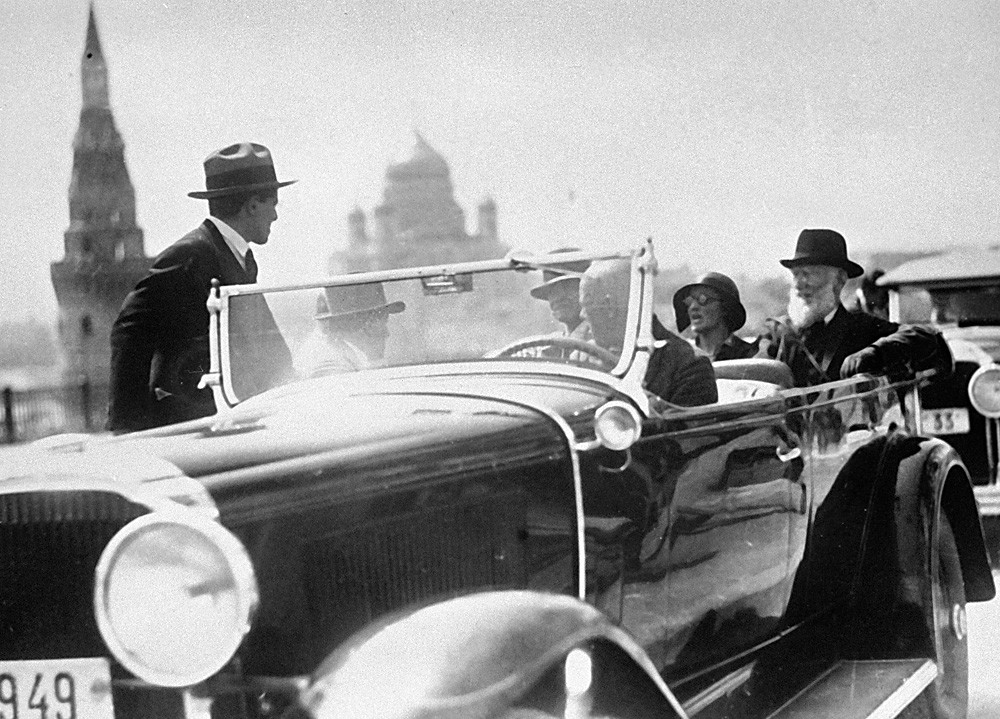
Bernard Shaw (R) being driven around Moscow in a chauffeured car.
RIA NovostiGeorge Bernard Shaw was one of the few in the West to welcome the 1917 Russian Revolution, which is why when he visited Soviet Russia during his world cruise in 1931 he was invited to Stalin’s Kremlin office. They chatted about three hours and Shaw remembered that Stalin played his role perfectly and hosted the guests as if they were old friends.
The details of their talk were not revealed, but following their meeting Shaw said: “I expected to see a Russian worker and I found a Georgian gentleman.” The writer was so impressed by his trip that before leaving the USSR he said: “Tomorrow I leave this land of hope and return to our Western countries – the countries of despair.”
Shaw’s visit to the Soviet Union had a strong impact on the author. Returning to Europe he was first interviewed in Berlin where he claimed that Stalin was a “giant,” while other politicians were “pigmies.” A few days later in
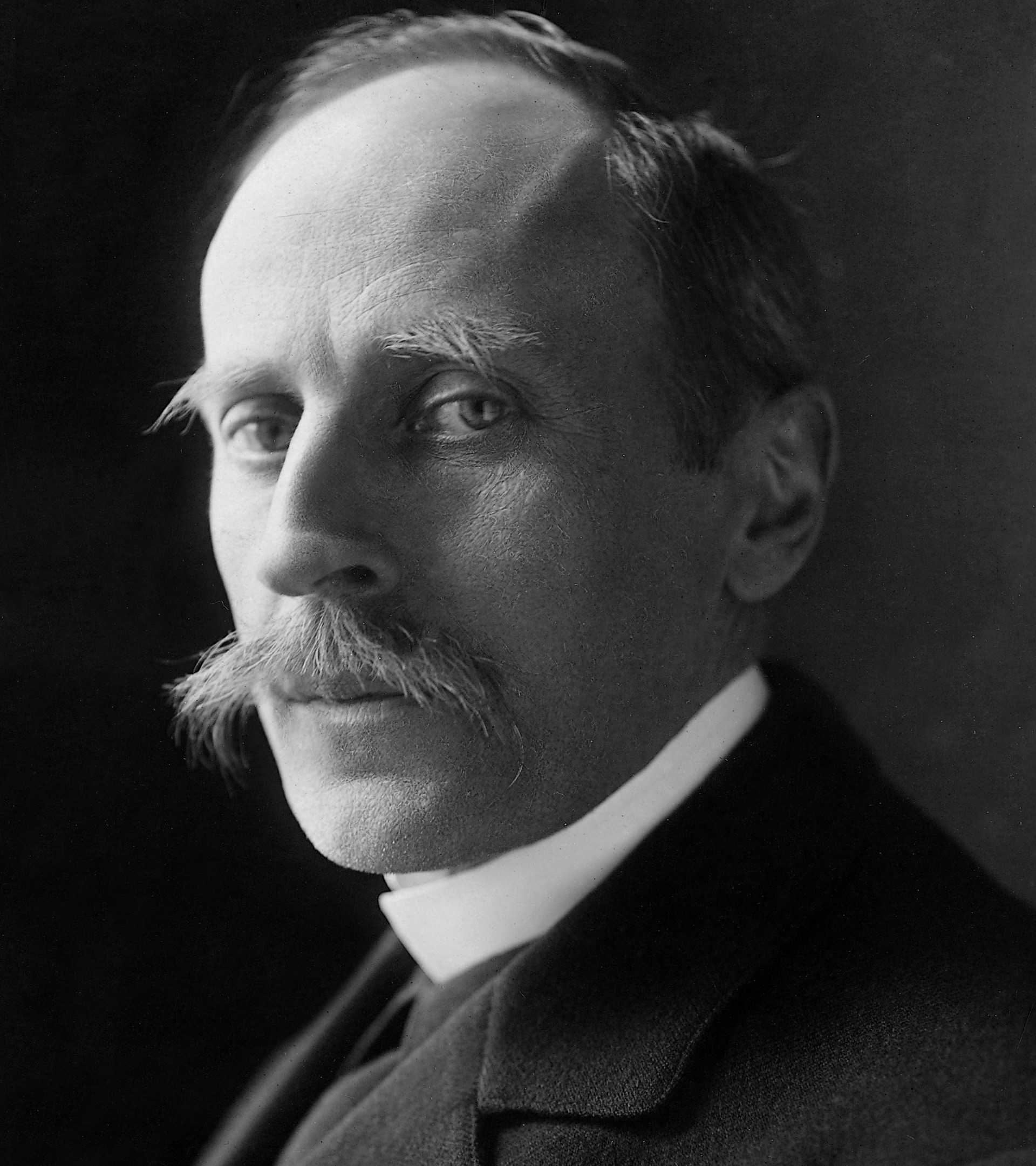
Romain Rolland
Scherl/Global Look PressInterestingly, some of the writers we’ve mentioned already had some connection with the giant Soviet author, Maxim Gorky: Twain met him in New York, while Wells stayed at his place during a visit to Moscow and then lived with Gorky’s ex-girlfriend. French writer Rolland was invited to Moscow by Gorky in
Stalin had
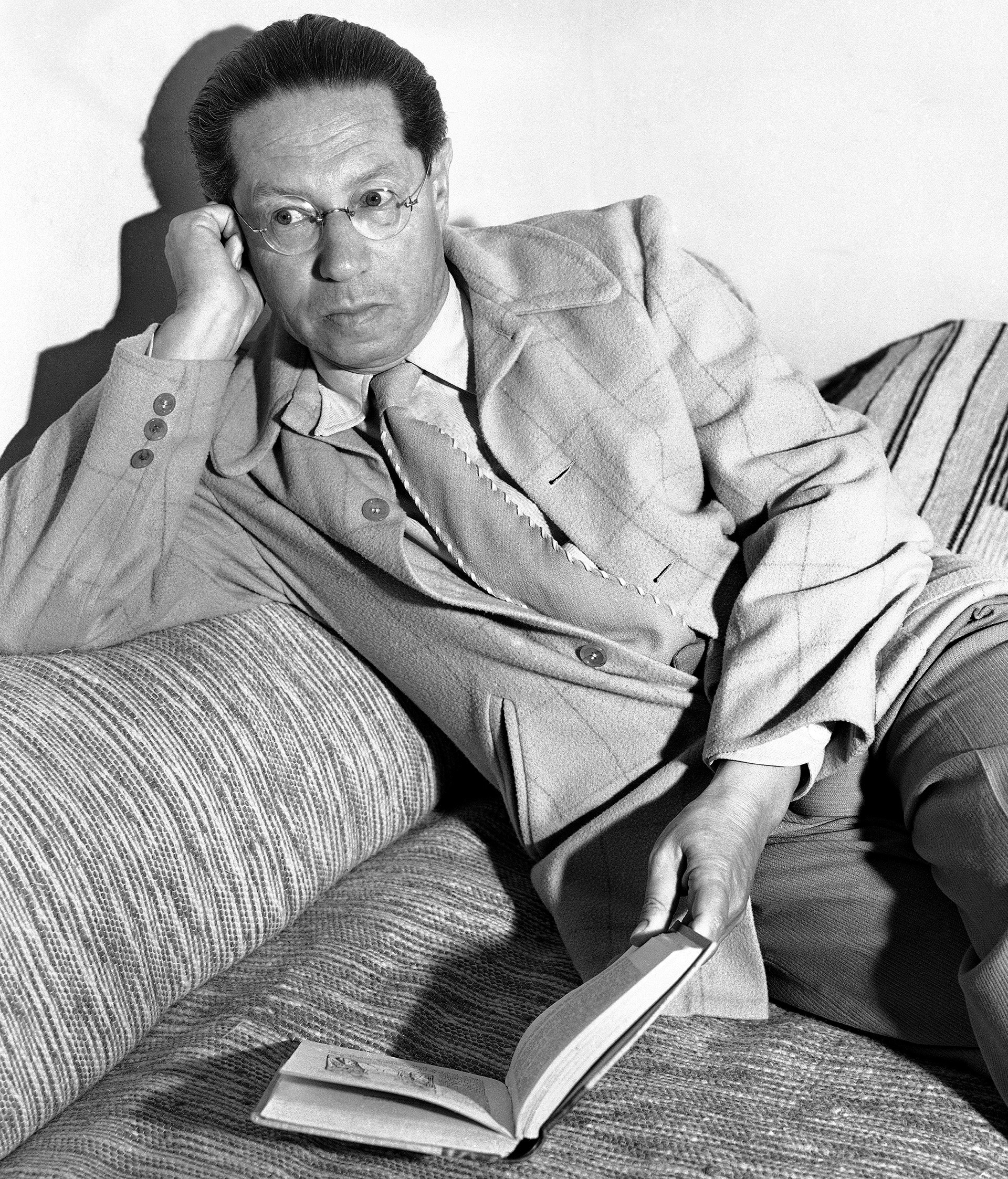
Lion Feuchtwanger
APGerman writer Lion Feuchtwanger, as well as many other Western authors, saw the USSR as the only force that could resist Hitler. “His portraits give the impression that Stalin is big, broad, and commanding.
The writer admits that there were no arrangements as to what he should or shouldn’t discuss with Stalin, so he prepared for their talk, but wanted to seem spontaneous in order to avoid an official conversation.
“We spoke about the freedom of writing, about democracy, and, as I have already mentioned, about Stalin-worship. Only at the beginning of the conversation did Stalin express himself in general terms, using sundry hackneyed expressions from the Party vocabulary. Soon, he ceased to be the Party leader and became an individual, not always
If using any of Russia Beyond's content, partly or in full, always provide an active hyperlink to the original material.
Subscribe
to our newsletter!
Get the week's best stories straight to your inbox